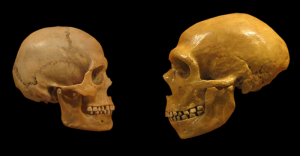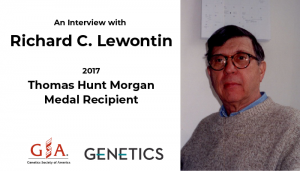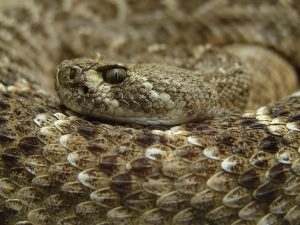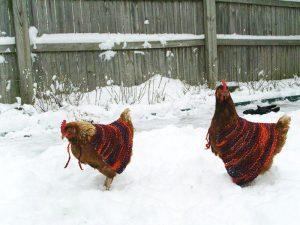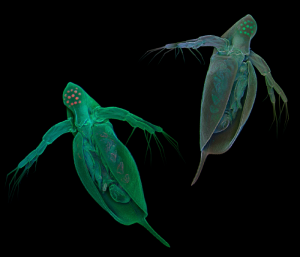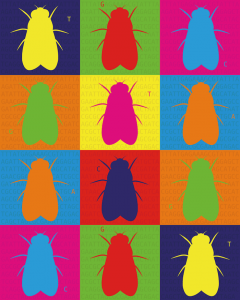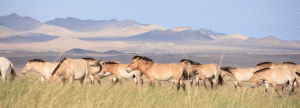Enter your address to receive notifications about new posts to your email.
Articles tagged Population Genetics
(66 results)
-
Tales told by ancient human DNA
Archaeologists have long known how to extract millennia-old stories from a single tooth buried in an ancient ruin—and now geneticists have the tools to join them. Advances made in the last several years have enabled researchers to sequence tiny amounts of DNA preserved in very old specimens, such as the material inside a tooth from…
-
Random Factors: An Interview with 2017 Thomas Hunt Morgan Medal Recipient Richard C. Lewontin
The Thomas Hunt Morgan Medal is awarded to an individual member of the Genetics Society of America for lifetime achievement in the field of genetics. It recognizes the full body of work of an exceptional geneticist. The 2017 recipient is Richard C. Lewontin, whose contributions and influence have profoundly shaped the field of evolutionary genetics.…
-
Behind the Cover: Genetic ancestry in Colombia
Over three centuries, as many as a million enslaved people were shipped to the Colombian port of Cartagena. From this hub of the slave trade, European colonists took Africans to labor in many places across the Americas, including the gold mines of the Chocó region. Today, people from Chocó often proudly identify as Afro-Colombian, while…
-
Venom holds clues to triggers of gene family expansion
They rattle as warning, but during the hunt their strike is silent and sudden. Any rabbit or mouse targeted by a rattlesnake is doomed—the snake’s bite carries a paralyzing venom. The toxins in this venom are proteins encoded by a large gene family that arose by gene duplication. In the July issue of GENETICS, Margres…
-
Hot wings and snow birds: Extreme temperature adaptation in domestic chickens
Humans built the modern world with the help of domestic plants and animals. A byproduct of our many domestication experiments is a series of excellent long-term controlled evolutionary comparisons that are helping geneticists understand adaptation. In a study published in the May issue of G3, Fleming et al. identify genomic regions under natural selection in…
-
MPP People: Andrew Morgan
Multiparental populations (MPPs) have brought a new era in mapping complex traits, as well as new analytical challenges. To face these challenges and encourage innovation, the GSA journals launched the ongoing Multiparental Populations series in 2014. This month’s issues of GENETICS and G3 feature a bumper 16 MPP articles, timed to celebrate a new easy-to-use…
-
On the cover: Daphnia in the spotlight
Illuminating the cover of the May issue of G3 is a lake-dwelling filter feeder no more than a couple millimeters long. This microcrustacean—Daphnia pulex, also known as the water flea—is an important model organism, especially in ecological genetics. But despite Daphnia’s status as a model organism, no one had examined its population genomics until now.…
-
50 years of molecular evolution in Drosophila
In the genomic era, population geneticists are flooded with molecular data on the evolution of natural populations. This deluge started in 1966 as a trickle of data from protein electrophoresis studies, including the landmark GENETICS papers published by Richard Lewontin and John Hubby. As Lewontin is honored this week at the Annual Drosophila Research Conference…
-
Richard Lewontin is awarded the 2017 Morgan Medal
We are pleased to announce that Richard C. Lewontin, PhD is the 2017 recipient of the Thomas Hunt Morgan Medal for lifetime achievement in the field of genetics. This award recognizes Lewontin’s extensive impact on our understanding of evolution, a broad and deep influence that has shaped the field. An unprecedented 160 distinguished biologists co-signed a…
-
The unique genetic variation of the Greenlandic Inuit population could help find novel disease associations
Despite being covered by a massive, permanent ice sheet, Greenland has been continuously inhabited by humans for over a thousand years. Most modern Greenlanders are Inuit whose ancestors migrated eastward from Canada around 1000 AD, bringing technology like kayaks and dogsleds. They eventually settled on the coasts of the world’s largest island, hunting whales and…
-
The Genetic History of Horses
Like any revolutionary technology, domestic horses changed human society. The incredible speed and strength of these animals opened up new opportunities to spread trade, language, and culture. For thousands of years, horses have been helping build human society by pulling wagons and plows and carrying soldiers and travelers on their backs. Horse husbandry changed humanity,…


